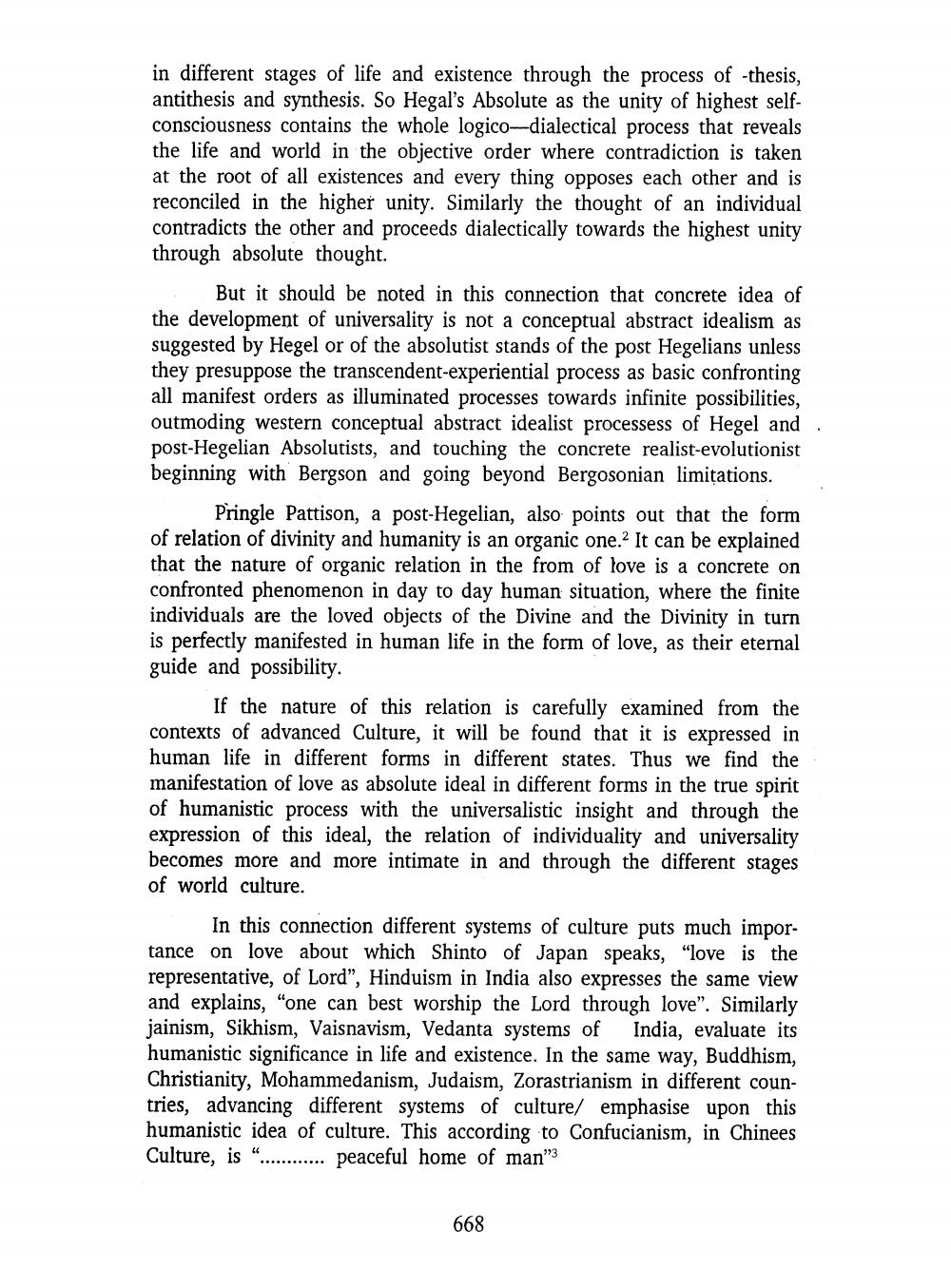________________
in different stages of life and existence through the process of thesis, antithesis and synthesis. So Hegal's Absolute as the unity of highest selfconsciousness contains the whole logico-dialectical process that reveals the life and world in the objective order where contradiction is taken at the root of all existences and every thing opposes each other and is reconciled in the higher unity. Similarly the thought of an individual contradicts the other and proceeds dialectically towards the highest unity through absolute thought.
But it should be noted in this connection that concrete idea of the development of universality is not a conceptual abstract idealism as suggested by Hegel or of the absolutist stands of the post Hegelians unless they presuppose the transcendent-experiential process as basic confronting all manifest orders as illuminated processes towards infinite possibilities, outmoding western conceptual abstract idealist processess of Hegel and post-Hegelian Absolutists, and touching the concrete realist-evolutionist beginning with Bergson and going beyond Bergosonian limitations.
Pringle Pattison, a post-Hegelian, also points out that the form of relation of divinity and humanity is an organic one. It can be explained that the nature of organic relation in the from of love is a concrete on confronted phenomenon in day to day human situation, where the finite individuals are the loved objects of the Divine and the Divinity in turn is perfectly manifested in human life in the form of love, as their eternal guide and possibility.
If the nature of this relation is carefully examined from the contexts of advanced Culture, it will be found that it is expressed in human life in different forms in different states. Thus we find the manifestation of love as absolute ideal in different forms in the true spirit of humanistic process with the universalistic insight and through the expression of this ideal, the relation of individuality and universality becomes more and more intimate in and through the different stages of world culture.
In this connection different systems of culture puts much importance on love about which Shinto of Japan speaks, "love is the representative, of Lord”, Hinduism in India also expresses the same view and explains, "one can best worship the Lord through love”. Similarly jainism, Sikhism, Vaisnavism, Vedanta systems of India, evaluate its humanistic significance in life and existence. In the same way, Buddhism, Christianity, Mohammedanism, Judaism, Zorastrianism in different countries, advancing different systems of culture/ emphasise upon this humanistic idea of culture. This according to Confucianism, in Chinees Culture, is “............ peaceful home of man"
668




